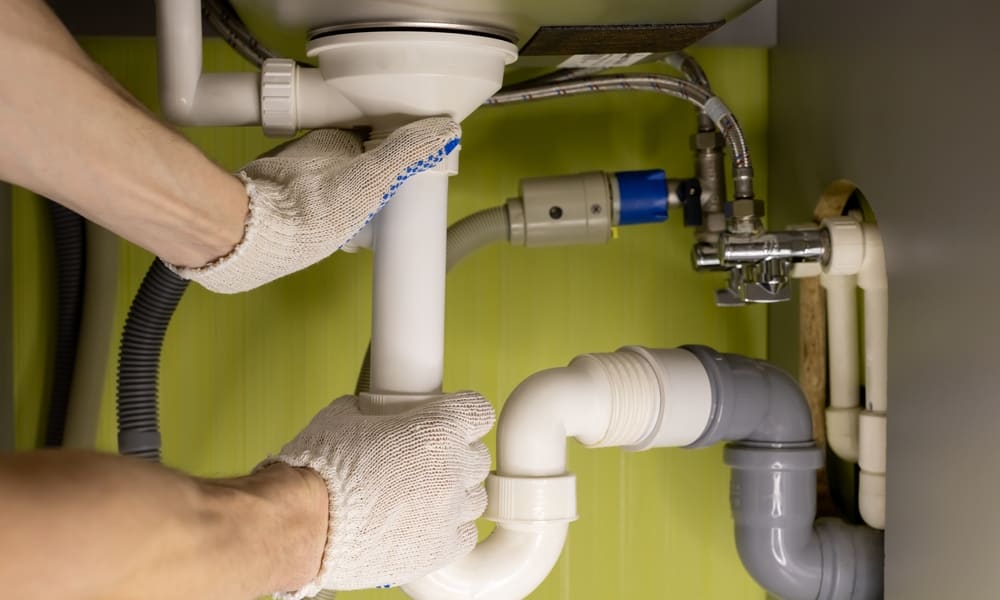Professional Drain Cleaning Services: Sewer and Sink Solutions
Dealing with clogged drains? This guide covers drain cleaning services, including sewer drain cleaning and how to properly clean sink drains. Learn when to call a professional and how regular maintenance can prevent costly plumbing issues in the future.

What are the benefits of professional drain cleaning?
Professional drain cleaning offers numerous advantages over DIY methods. Firstly, experienced plumbers have access to specialized tools and techniques that can effectively clear even the most stubborn clogs. These may include high-pressure water jetting, which can remove buildup and debris from pipe walls, or video camera inspections to identify hidden issues within your plumbing system.
Additionally, professional services can help prevent future problems by thoroughly cleaning your pipes and identifying potential weak points or areas of concern. This proactive approach can save you money in the long run by avoiding emergency repairs or more extensive damage to your plumbing system.
Another key benefit is the expertise that professionals bring to the table. They can accurately diagnose the root cause of your drain issues and provide tailored solutions, ensuring that the problem is resolved effectively and efficiently.
What sewer drain cleaning methods do professionals use?
Professional plumbers employ a variety of methods to clean sewer drains, depending on the severity and nature of the clog. Some common techniques include:
-
Hydro jetting: This powerful method uses high-pressure water to blast away debris, grease, and other buildup from the walls of your pipes. It’s particularly effective for severe clogs and can also help prevent future blockages.
-
Snaking: A plumbing snake, or auger, is a long, flexible cable that can be inserted into the drain to break up or remove obstructions. This method is often used for less severe clogs or as an initial step before more intensive cleaning.
-
Video camera inspection: While not a cleaning method per se, this diagnostic tool allows plumbers to visually inspect the inside of your pipes, identifying issues such as tree root intrusion, pipe damage, or severe buildup that may require specialized treatment.
-
Chemical treatments: In some cases, professionals may use eco-friendly chemical treatments to dissolve stubborn clogs or treat recurring issues like tree root growth.
How to clean sink drains effectively?
While some sink clogs may require professional intervention, there are several steps you can take to maintain clean sink drains:
-
Use a plunger: For minor clogs, a simple plunger can often do the trick. Ensure there’s enough water in the sink to cover the plunger’s head, create a tight seal, and plunge vigorously.
-
Try a natural solution: A mixture of baking soda and vinegar can help break down minor clogs and eliminate odors. Pour 1/2 cup of baking soda down the drain, followed by 1/2 cup of white vinegar. Cover the drain and let it sit for 15 minutes before flushing with hot water.
-
Use a drain snake: For slightly more stubborn clogs, a handheld drain snake can be effective. Insert the snake into the drain and turn the handle to navigate through the pipes, breaking up the clog as you go.
-
Remove and clean the P-trap: The P-trap is the curved section of pipe under your sink. Place a bucket underneath, unscrew the connections, and remove any debris you find.
When to call a plumber for drain cleaning?
While DIY methods can be effective for minor clogs, there are situations where it’s best to call a professional plumber:
-
Multiple drains are clogged: This could indicate a more serious issue with your main sewer line.
-
Recurring clogs: If you find yourself dealing with the same clog repeatedly, there may be an underlying issue that needs professional attention.
-
Foul odors: Persistent bad smells coming from your drains could signal a sewage backup or other serious problems.
-
Slow draining throughout the house: This may indicate a main line clog that requires professional equipment to resolve.
-
Water backing up: If you notice water backing up into other drains when you use appliances, it’s time to call a plumber.
-
Age of your plumbing: Older homes with aging pipe systems may require more frequent professional maintenance to prevent serious issues.
What are some tips for maintaining clean drains?
Preventing clogs is often easier and more cost-effective than dealing with them after they occur. Here are some tips for maintaining clean drains:
-
Use drain strainers: Install strainers in all your sinks and showers to catch hair, food particles, and other debris before they enter your pipes.
-
Avoid flushing problematic items: Never flush items like wipes, cotton swabs, or feminine hygiene products, even if they’re labeled as “flushable.”
-
Run hot water regularly: Flushing your drains with hot water weekly can help prevent buildup of grease and soap residue.
-
Schedule regular maintenance: Consider having a professional plumber perform annual or bi-annual drain cleaning to keep your pipes in optimal condition.
-
Be mindful of what goes down the drain: Avoid pouring grease, coffee grounds, or large food particles down your kitchen sink.
-
Use enzymatic cleaners: Monthly use of enzymatic drain cleaners can help break down organic matter and prevent buildup in your pipes.
By understanding the benefits of professional drain cleaning, knowing when to attempt DIY solutions, and implementing regular maintenance practices, you can keep your drains flowing smoothly and avoid costly plumbing emergencies. Remember, when in doubt, it’s always best to consult with a professional plumber to ensure the health and longevity of your home’s plumbing system.




